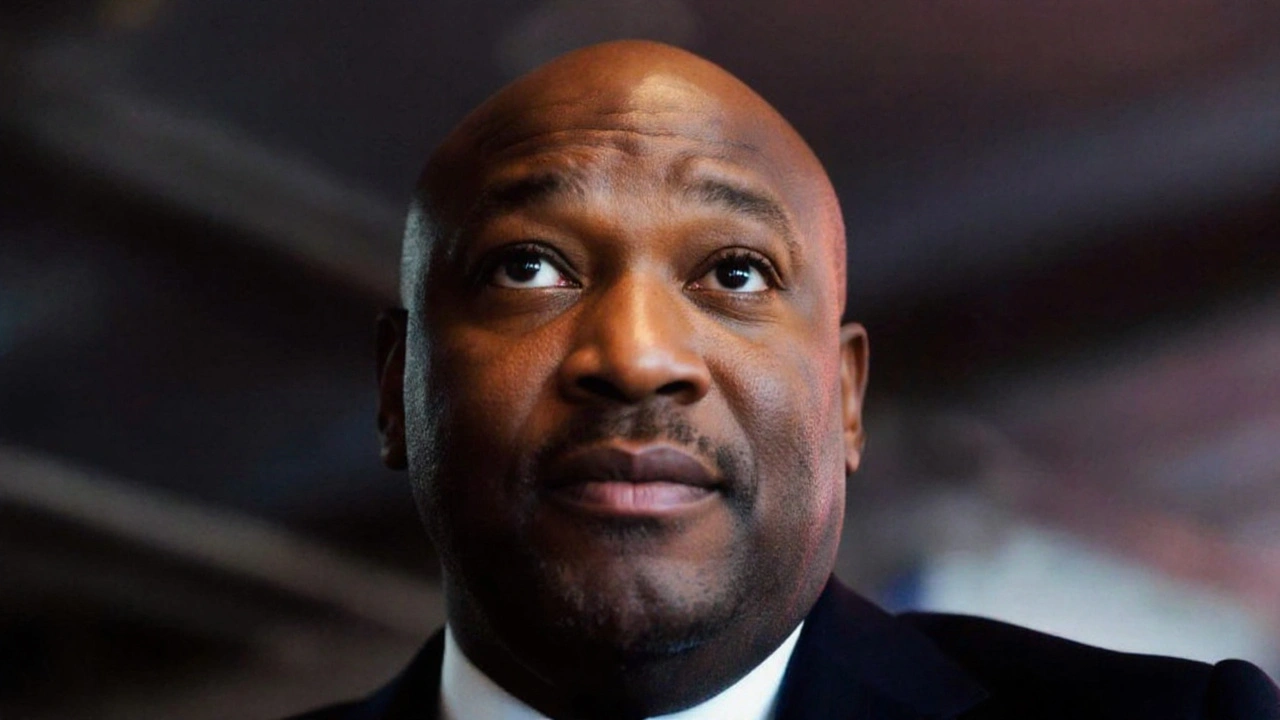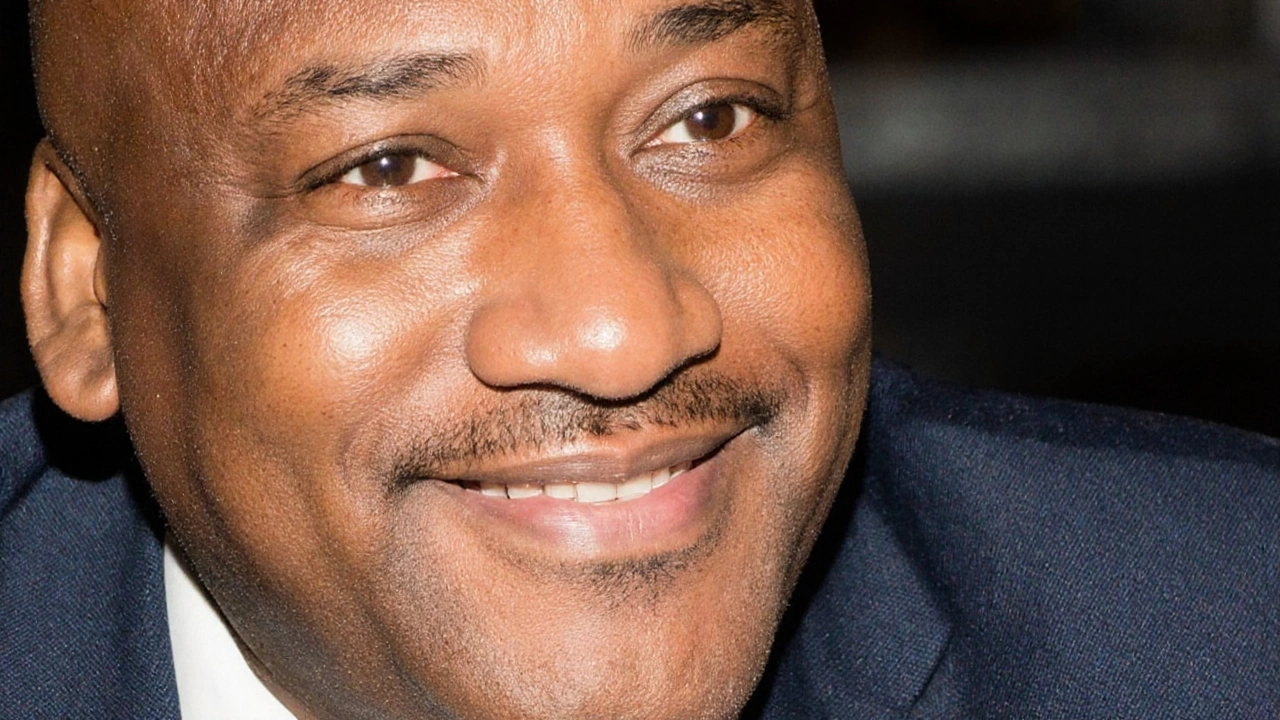27 Sep 2025
- 16 Comments
Background to the scandal
In early August 2025, a batch of screenshots from several years ago began circulating on Twitter, Facebook and local forums. The images captured Gayton McKenzie, leader of the Patriotic Alliance and the newly appointed Minister of Sports, Arts and Culture, typing the infamous K‑word in a series of posts. The term, a relic of apartheid‑era hate speech, is still legally classified as a criminal offense when used to insult or degrade black South Africans.
McKenzie's tweets were not isolated jokes; they appeared across multiple accounts and referenced a range of political topics. In each case, he attached a comment that the slur was being used to "highlight the absurdity of racism" or to "call out bigotry". When asked why a black politician would employ such a loaded word, he responded that he could not be racist because of his own skin colour, a stance that quickly drew fire from activists and scholars alike.
After the screenshots went viral, the minister issued a public apology. He described his past remarks as "insensitive, stupid, and hurtful" and pledged to avoid any language that could be interpreted as hateful. Critics, however, noted that his apology was couched in a defensive tone that reminded many of his notoriously brash public persona.

Political fallout and next steps
The backlash was swift. Leaders from across the opposition spectrum – the Democratic Alliance (DA), ActionSA, the African Transformation Movement (ATM) and the Economic Freedom Fighters (EFF) – all demanded McKenzie's immediate removal. DA leader John Steenhuisen warned that tolerating such rhetoric would undermine South Africa’s ongoing reconciliation efforts, while EFF spokesperson Naledi Chirwa called the minister’s conduct "a betrayal of the very people he claims to represent".
ActionSA took the matter a step further by filing a formal complaint with the South African Human Rights Commission (SAHRC). Party MP Alan Beasley argued that a minister who deals with culture and sport should set a higher standard of respect and inclusivity. The SAHRC announced that it would launch an investigation, reviewing both the tweets and the minister’s recent actions for possible breaches of the Promotion of Equality and Prevention of Unfair Discrimination Act.
The timing of the scandal added another layer of complexity. Just weeks earlier, McKenzie had spearheaded a campaign against the hosts of the Open Chats Podcast for their own derogatory remarks about the Coloured community. He succeeded in having the episode removed from MultiChoice’s DStv platform and filed criminal charges against the broadcasters. Opponents seized on this apparent double standard, dubbing McKenzie “the watchdog who can’t see his own teeth”.
Political analysts suggest that while the K-word controversy could force McKenzie out of the cabinet, his position within the Patriotic Alliance might remain intact. The party, still relatively new on the national stage, relies heavily on his personal brand and fundraising clout. Some insiders say that internal party mechanisms could protect him, at least until the SAHRC’s findings are released.
- Democratic Alliance – calls for resignation, cites constitutional values.
- ActionSA – lodged formal SAHRC complaint, demands minister step down.
- African Transformation Movement – urged President to fire McKenzie.
- Economic Freedom Fighters – labelled the incident a "racial betrayal".
Beyond the immediate political drama, the episode has reignited a broader conversation about the durability of apartheid‑era language in modern South Africa. Scholars note that while some black South Africans have reclaimed certain slurs in private settings, public officials are expected to model unity and refrain from language that reopens historic wounds. The case also raises questions about the efficacy of existing hate‑speech legislation when applied to a black politician using a term traditionally wielded by white supremacists.
As the SAHRC moves forward with its inquiry, civil society groups are preparing parallel campaigns. Organizations such as the Nelson Mandela Foundation and the Equal Rights Trust have issued statements urging swift accountability and calling for a national dialogue on the limits of free speech versus hate speech. Meanwhile, the Ministry of Sports, Arts and Culture’s communications team has been largely silent, issuing only a brief note that an internal review is underway.
Public opinion appears divided. A recent poll by Ipsos showed that 42% of respondents think McKenzie should resign, 35% believe he deserves a chance to apologize and improve, and the rest were undecided. Younger voters, especially those active on social media, tend to side with the resignation camp, citing the need for leaders to embody the post‑apartheid ethos of respect and inclusivity.


Amol Rane
September 27, 2025One must contemplate the epistemic ramifications of a public figure wielding a relic of oppression as a rhetorical device. It exposes a dissonance between self‑perceived moral authority and the lived realities of marginalized communities. Such conduct, regardless of intent, erodes the fragile social contract that underpins post‑apartheid discourse. The incident also illustrates the perils of intellectual arrogance when one assumes the right to re‑contextualize hateful lexicon.
Venkatesh nayak
October 6, 2025In formal terms, the usage of the K‑word by Minister McKenzie contravenes established statutes governing hate speech. The immediate apology, while procedurally appropriate, fails to mitigate the substantive breach of ethical standards expected of officeholders. Moreover, the political ramifications extend beyond mere reputational damage, potentially influencing legislative oversight mechanisms. It is incumbent upon the relevant committees to scrutinize such behavior with due diligence.
rao saddam
October 15, 2025Wow, this is a textbook case of why we need stricter accountability! The minister’s excuse about “not being able to be racist” is laughable!!! It's a blatant disregard for the pain that word carries!!! We should demand immediate resignation and a thorough review!!! Anything less would be an affront to those who've suffered under that language!!!
Prince Fajardo
October 24, 2025Sure, because calling out bigotry with a slur is a brilliant strategy.
Subhashree Das
November 3, 2025The emotional toll this episode takes on the Black community cannot be overstated. Every time a public figure-especially one who claims to champion our interests-drops such a vile term, it reopens old wounds that we are still trying to heal. The apology, while superficially sincere, feels more like a pressure‑release valve than a genuine contrition. It does nothing to address the structural issues that still allow such rhetoric to surface. Moreover, the selective outrage-where the minister attacks others for similar language while excusing his own-reveals a disturbing double standard. This pattern underscores the need for consistent enforcement of hate‑speech laws, regardless of who is speaking. The SAHRC’s involvement is a necessary step, but it must be followed by concrete policy reforms. Civil society must keep the pressure on; a one‑off apology is insufficient. In the long run, we need education initiatives that dismantle the lingering acceptance of such slurs across all strata of society.
jitendra vishwakarma
November 12, 2025i think its realy big problem when a minister says stuff like that. it shows they havent learnd from history. also, the public should hold them accountable and not just move on. we need consistent stnadards for everyone.
Ira Indeikina
November 21, 2025We must ask ourselves why the notion of “highlighting absurdity” is invoked as a shield for hate. The moral calculus is simple: language that perpetuates trauma cannot be excused by intent. Yet, some will argue that reclaiming slurs dilutes their power-a philosophical position that ignores lived experience. Therefore, I urge a decisive stance: such usage is unacceptable, period. Let us move beyond hollow apologies toward genuine accountability.
Shashikiran R
November 30, 2025It is morally indefensible for any public servant to employ a term steeped in oppression. The hypocrisy displayed by the minister is an affront to the very values of inclusivity he purportedly upholds. We cannot allow political expediency to excuse such breaches of decency. The nation deserves leaders who embody the principles they espouse.
SURAJ ASHISH
December 10, 2025This is a classic case of double standards.
PARVINDER DHILLON
December 19, 2025Understanding and compassion are needed here 😊. While accountability is essential, we should also foster dialogue to prevent future incidents. Let’s work together for a more respectful public sphere.
Nilanjan Banerjee
December 28, 2025The K‑word controversy is not merely a political footnote but a symptom of deeper cultural malaise. South Africa's legislative framework was crafted to prevent the revival of apartheid-era venom, yet its enforcement remains uneven. When a black minister employs a slur historically wielded by white supremacists, the law confronts a paradox that tests its very elasticity. Scholars argue that context matters, but context cannot erase the word's intrinsic power to wound. The media frenzy surrounding McKenzie illustrates how quickly public sentiment can pivot from outrage to fatigue. Meanwhile, opposition parties seize the moment to score political points, often eclipsing genuine concerns about societal healing. The SAHRC's impending investigation will likely scrutinize not only the tweets but also the minister's broader record on inclusivity. If the commission issues a finding of misconduct, it could set a precedent that no public figure is above the language code. Conversely, a lenient outcome might embolden others to test the boundaries of hate‑speech legislation. Within the Patriotic Alliance, McKenzie's personal brand is intertwined with fundraising prowess, suggesting internal protection mechanisms. Yet the electorate, especially younger voters, appear less tolerant of such linguistic transgressions. Polls reveal a generational divide that could reshape electoral calculus in upcoming municipal contests. Civil society organizations, from the Mandela Foundation to the Equal Rights Trust, are poised to amplify calls for accountability. Their advocacy may pressure the Ministry of Sports, Arts and Culture to adopt a transparent remedial plan. Ultimately, the scandal forces South Africa to confront whether the vestiges of apartheid language can ever truly be reconciled within a democratic tapestry.
sri surahno
January 6, 2026One cannot ignore the covert networks that may be influencing this narrative. The timing aligns suspiciously with undisclosed funding streams aimed at destabilizing progressive coalitions. It is plausible that external actors are exploiting the scandal to sow discord. Vigilance is required to uncover any hidden agendas behind the public outcry.
Varun Kumar
January 16, 2026This is a clear breach of our national values. Immediate action is required.
Madhu Murthi
January 25, 2026What a shameful display of hypocrisy 😒. The minister should be held to the same standards he imposes on others. Accountability must be swift 🚨.
Amrinder Kahlon
February 3, 2026Oh great, another scandal to binge-watch on the news.
Abhay patil
February 12, 2026We can turn this moment into a catalyst for positive change. By demanding transparency, we reinforce democratic norms. Encouraging open dialogue will help heal communal wounds. Let’s support initiatives that promote respectful language in public office. Together we can build a more inclusive society.